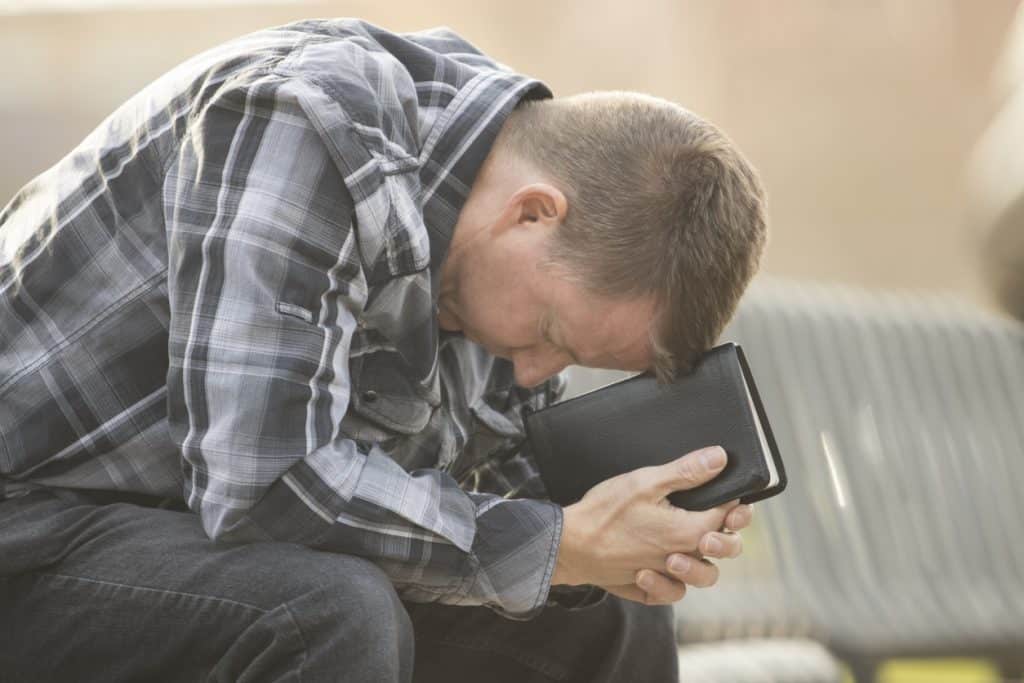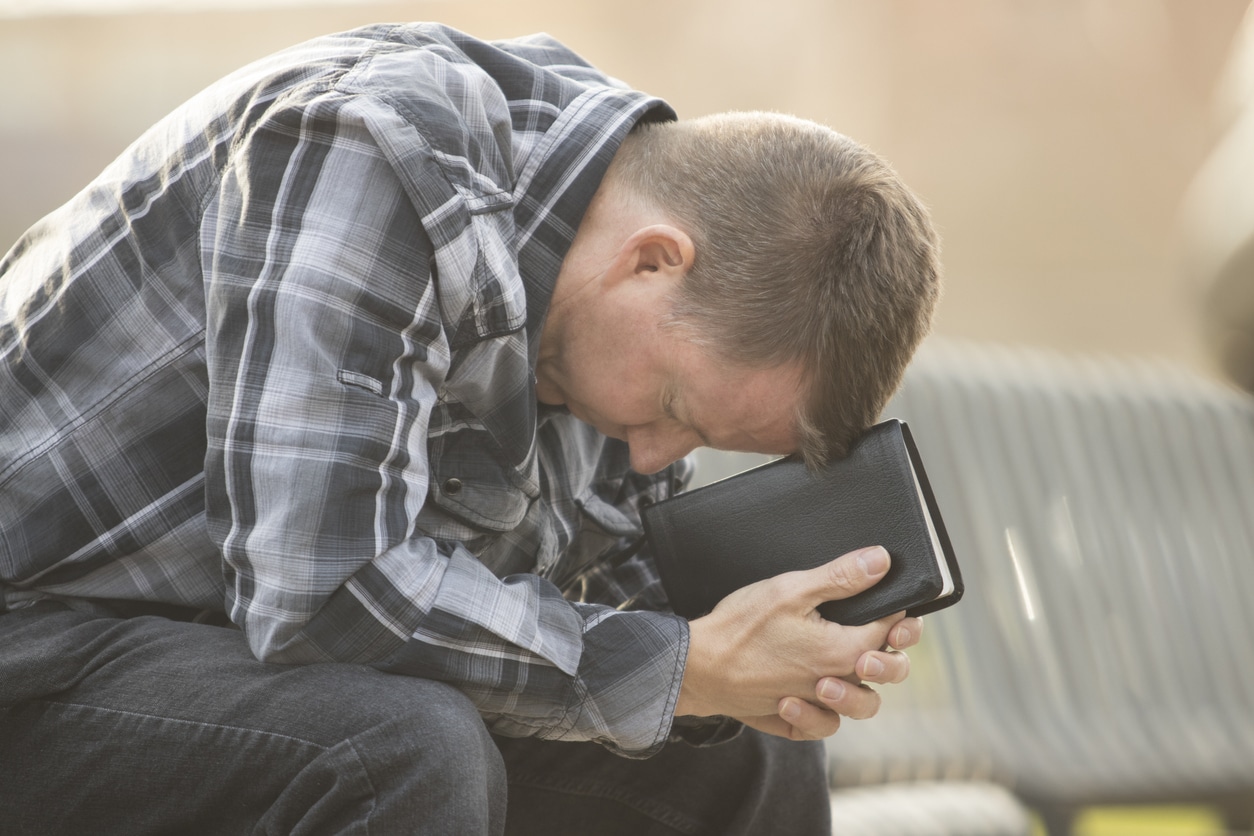Have you ever noticed that you tend to feel very sleepy after praying? You’re not alone. In fact, there’s a scientific explanation for why this happens. Let’s take a closer look at the connection between prayer and sleep.
Is it normal to get sleep when you pray?
It is not uncommon for people to feel tired after prayer, particularly if they have been praying for a prolonged period of time. This is because prayer can be a form of meditation, and meditation has been shown to be effective in reducing stress and promoting relaxation. In addition, prayer can often be emotionally draining, as people may be focusing on issues that are important to them. As a result, it is perfectly normal to feel sleepy after praying.

Why do I keep falling asleep during prayer?
Relaxation
First of all, when we pray, we are often in a state of relaxation. We are intentionally focusing on calming our minds and bodies and connecting with God. This can lead to feeling sleepy.
In addition, when we pray, we are often focusing on our breath. This deep breathing activates the parasympathetic nervous system, which is responsible for “rest and digest.” This can also lead to feeling sleepy.
Finally, meditation is a common practice during prayer. Meditation has been shown to have numerous benefits for our physical and mental health, one of which is increased sleepiness.
Read also: Why do I feel sleepy in Church?
Prayer and the Autonomic Nervous System
It turns out that prayer activates something called the autonomic nervous system (ANS). The ANS is responsible for controlling all of the automatic functions of the body, like heart rate, respiration, digesting food, and so on. There are two main branches of the ANS: the sympathetic nervous system (SNS) and the parasympathetic nervous system (PSNS).
The SNS is responsible for preparing the body for “fight or flight” in response to stressors. This is why your heart rate increases and you start to sweat when you’re in a dangerous or stressful situation. The PSNS, on the other hand, is responsible for “rest and digest.” This branch of the ANS slows down the heart rate and promotes activities like eating and sleeping.
So, what does this have to do with feeling sleepy after prayer? Well, it turns out that prayer reduces SNS activity and increases PSNS activity. This results in increased relaxation during prayer, which can help us feel ready for sleep.
High emotion
When you pray, you are expressing your deepest thoughts and emotions to God. This can be a very vulnerable experience, and it is normal to feel weary afterwards. Just as you would allow yourself time to process any other emotionally taxing event, it is important to give yourself time to rest after prayer. This doesn’t mean that you need to sleep immediately, but it does mean that you shouldn’t push yourself to stay awake if you feel yourself getting sleepy. There is no shame in taking a few moments to relax and rejuvenate after prayer. In fact, it may even be helpful in restoring your energy and focus for the rest of the day.
Praying at the end of a long day
It is also worth noting that people tend to feel sleepy at the end of the day, regardless of whether or not they have prayed. This is because our bodies are designed to follow a natural sleep cycle, and this cycle is often disrupted by the demands of modern life. For many people, prayer is simply one more activity that takes place at the end of the day, and it is not uncommon for people to feel tired after completing this activity.
If you find that you are consistently feeling sleepy after prayer, it may be helpful to pray earlier in the day, such as in the morning. This will give your body time to rest before the natural sleep cycle begins.
Alternatively, you could try praying for shorter periods of time, or using a guided prayer that includes relaxation techniques. This may even include listening to worship music which helps you to avoid falling asleep.
Read also: Why do I get sleepy when I read the Bible?
How to stop falling asleep when praying.
1) Try to pray at the same time every day. This will help your body get into a rhythm and know when it’s time to focus and be alert. Evening prayer may be easy to fit into the day, but if you often find yourself tired by then you may wish to build your prayer routine into the morning or afternoon.
2) Choose a comfortable place to pray where you won’t be distracted by your
surroundings. A dark and quiet room may help you relax and fall asleep, so try to find a place that’s bright and cheerful for your prayers.
3) Get up and move around every so often. Prayer doesn’t have to be a stationary activity. You can walk, pace, or even do some gentle stretches while you pray. Just make sure you’re not moving around so much that you’re no longer focusing on your prayer and finding it hard to concentrate.
4) Make sure you’re getting enough sleep at night. A tired body is more likely to fall asleep during the day, so make sure you’re getting 7-8 hours of sleep every night.
5) Talk out loud when you pray. This may help you stay more awake and engaged with what you’re saying. Silent prayer comes naturally to most believers, but saying the words out loud can actually help you to engage more fully with your faith.
6) Be patient with yourself. It’s okay if you don’t always stay awake during prayer time. Just keep trying, and eventually, you’ll find a way to stay alert and present during your time with God. Remember that prayer is a time for joy and connection with faith, and not simply a chore to be done. If you continue to dedicate time to your prayer life then it will become more natural and part of your normal routine.
Conclusion: Why you get sleepy when you pray
There is a scientific explanation for why people often feel sleepy after praying. Prayer can be a form of meditation, and it has been shown to reduce stress and promote relaxation. In addition, prayer can be emotionally draining, and the autonomic nervous system (ANS) plays a role in making people feel sleepy after prayer. If you find that you are consistently feeling sleepy after prayer, it may be helpful to pray earlier in the day or for shorter periods of time. However, there is no need to worry if you occasionally feel sleepy after prayer; this is perfectly normal and nothing to be concerned about.
